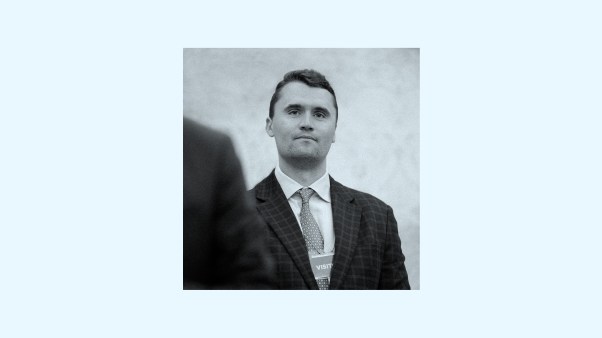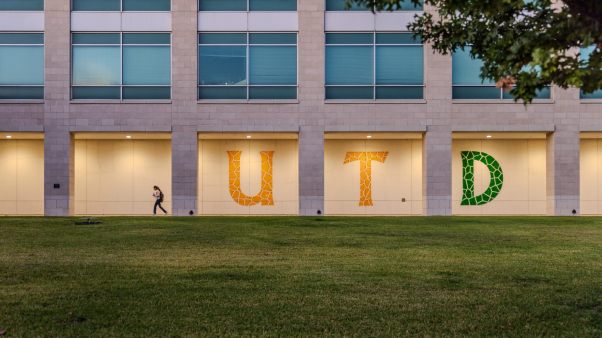A full gob of spittle landed in my face right outside my home in the center of Washington. It emanated from a black-clad and masked anarchist, who participated in an antiwar rally on Rhode Island Avenue, between hotels and apartment buildings.
I have always had a low tolerance for people who hide their visages. They are cowards, aren’t they? Terrorists do that sort of thing. So I asked the little creep, “What are you covering your face for?”
He lifted his mask just long enough to aim his saliva in my direction.
Now, here’s the irony. He was American and against the Iraq campaign; I am a German and, well, not exactly enthused by any kind of war, though I do consider the current action necessary, given what I have known for a long time about Saddam Hussein and his weapons program.
But the anarchist and I didn’t have time to discuss this. The little coward ran before I could place my two hands firmly around his neck.
This may not have been a very Christian intention on my part. As a Christian, I am beholden to forgive, and I guess I have. However, at the risk of being assigned a particularly low-flying cloud in the Hereafter, I must confess to a fair measure of German Schadenfreude when in his rush to get away from me my aggressor fell flat on his face.
Change of scene: As a European living in the United States, I increasingly receive wrenching calls from friends in France and Germany, imploring me to inform the Americans how deeply they regretted the rupture in the friendship between their countries and the United States.
“Please, please, please tell your American friends that many of us are disgusted with the politics of Jacques Chirac,” a Frenchwoman said. And a retired editor-in-chief from Germany was literally in tears when we discussed the comportment of Chancellor Gerhard Schroeder.
What appalled these thoughtful people most, though, were newspaper reports that German and French children attending schools in the United States were being taunted and harassed by their American classmates and even teachers.
“My God,” the Frenchwoman said, “we have been such good friends for so long, and now our kids are being taught to hate each other!”
Perhaps the worst story reached me from Hamburg, Germany. An entire class was about to fly to Tennessee on an exchange visit. Suddenly, the Tennessee partner school withdrew the invitation, arguing that it did not want these young Germans to bring their “anti-Americanism” to this country.
Presumably, these Tennesseans consider themselves good Christians. What, one wonders, made God-fearing people like these think that mere kids, far too young to vote, would be an appropriate target venting the Americans’ anger with Schroeder?
Why would the Tennesseans not warmly embrace these children to show them what Americans are really like? Why would they plant in these boys and girls, who were eagerly looking forward to their stay in the United States, the seed of hatred? What attitude toward strangers—especially the innocent—do these teachers and parents convey to the American children in their care? Surely it can’t be a biblical view.
Again, are we not called to forgive even bigots like that? Perhaps the Hamburg kids will do so in time. What about God, though? Here the Tennesseans pose a profound theological question, for theirs is an act of self-righteousness, which is diametrically opposed to the only righteousness before God, which is in Christ.
In other words, punishing kids for their government’s policy is decidedly an act of unrighteousness.
This episode shows up a flawed theology in segments of American Protestantism. The flaw is that some evangelical and liberal Protestants seem unable to draw a clear line between the spiritual and the secular realms.
If they knew this difference, it would never occur to them to hurt children because they disagreed with someone’s politics. Whatever Schroeder or Chirac do in the current conflict is secular in character. But children, like strangers, are under God’s special protection, the Bible tells us.
Perhaps someone ought to tell this to the self-righteous of Tennessee; it’s helpful for salvation.
Uwe Siemon-Netto is religion editor for United Press International.
Copyright © 2003 Christianity Today. Click for reprint information.
Related Elsewhere
For more coverage on the current conflict, commentary and thought on just war, or Christian debate, see our CTWar in Iraq archive.
Other relevant Christianity Today essays include:
Taking It Personally | What do we do with all this anger? (Sept. 14, 2001)
When Sin Reigns | An event like 9/11 shows us what humans are capable of becoming—both as children of darkness and of light. (Sept. 13, 2001)
Fear and Hate | In times like this, as in all other times, Christians have a responsibility to love above all else. (Sept. 11, 2001)
God’s Message in the Language of Events | In the face of evil, we must focus on keeping our hearts right. (Sept. 11, 2001)
A downloadable Bible study on the implications of war with Iraq is available at CurrentIssuesBibleStudy.com. These unique Bible studies use articles from current issues of Christianity Today to prompt thought-provoking discussions in adult Sunday school classes or small groups.
Recent Christianity Today articles and commentary on the current war with Iraq include:
The Iraq War Has Little Effect on the Rapture Index | The founder of an online end times “speedometer” says that other current events are more connected to biblical prophecy. (March 27, 2003)
‘The End Is Not Yet’ | The president of Dallas Theological Seminary says there will be an increase in wars and rumors of wars before the end times, but date setting should not be a priority for evangelicals. (March 27, 2003)
Evangelicals Plan to Minister to Iraqis’ Needs—Physical and Spiritual | Evangelism efforts will join relief work, say Southern Baptist Convention and Samaritan’s Purse. (March 27, 2003)
Relief Agencies Prepare to Help Iraqi Refugees | Meanwhile Christians in Baghdad fear the worst. (March 26, 2003)
Weblog: Newspapers Miss the Real End-Times Story | Evangelicals believe this is the end, say papers. Oh really? (March 25, 2003)
CT Classic: The Ethics of Desert Storm | What Christianity Today said during the U.S.’s first war with Iraq. (March 25, 2003)
War Isn’t Being Waged From the Pulpit | Most clergy avoid blanket statements on war. (March 24, 2003)
CT Classic: War Cry | As 1991’s Gulf War began, a Christianity Today editorial said the church’s best weapon was tearful prayer. (March 24, 2003)
What George Bush’s Favorite Devotional Writer Says About War | “War is the most damnably bad thing,” wrote Oswald Chambers. (March 24, 2003)
Peacemakers Seek to Show War from Point of View of Iraqi Civilians | Six Christian Peacemaker Team members remain in Iraq as bombs drop. (March 21, 2003)
Speaking Out: Where Do We Go From Here? | Now that the bombs are falling, we’ll need to repair Iraq—and our nation’s moral standing. (March 21, 2003)
CT Classic: Weeping over Baghdad | Desert Storm cost Iraq thousands of lives. At its conclusion, a Christianity Today editorial called for the church to deal with the living souls that remained. (March 21, 2003)
War Could Reduce Holy Land’s Christian Presence | Palestinian bishop fears current hostilities could continue a trend that sees Christians forced out of the area altogether. (March 21, 2003)
Weblog: Will War Breed Hate Crimes Against Muslims, Christians, or Both? | Plus: PCUSA court criticizes leader but dismisses charges, and other stories from online sources around the world. (March 20, 2003)
Standing for Peace on the Eve of War | Christian group seeks nonviolent solution in Iraq. (March 12, 2003)
Weapons of the Spirit | Regardless of their positions on Iraq, Christians have much they can do. (Feb. 25, 2003)
Just War in Iraq | Sometimes going to war is the charitable thing to do. (Dec. 10, 2002)
Keeping Their Heads Down | Vital but dwindling Christians face many pressures. (Nov. 8, 2002)
Bully Culprit | Can a pre-emptive strike against the tyrant of Baghdad be justified? (Sept. 30, 2001)
Is Attacking Iraq Moral? | Christian leaders disagree, too. (September 4, 2002)








